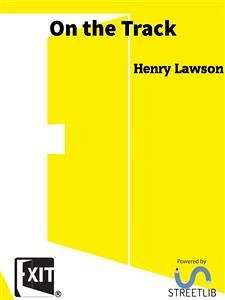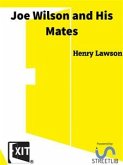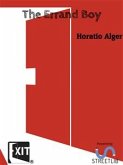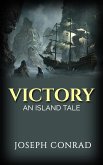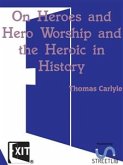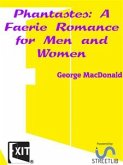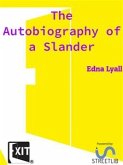The Songs They used to Sing
On the diggings up to twenty odd years ago—and as far back as I can remember—on Lambing Flat, the Pipe Clays, Gulgong, Home Rule, and so through the roaring list; in bark huts, tents, public-houses, sly grog shanties, and—well, the most glorious voice of all belonged to a bad girl. We were only children and didn't know why she was bad, but we weren't allowed to play near or go near the hut she lived in, and we were trained to believe firmly that something awful would happen to us if we stayed to answer a word, and didn't run away as fast as our legs could carry us, if she attempted to speak to us. We had before us the dread example of one urchin, who got an awful hiding and went on bread and water for twenty-four hours for allowing her to kiss him and give him lollies. She didn't look bad—she looked to us like a grand and beautiful lady-girl—but we got instilled into us the idea that she was an awful bad woman, something more terrible even than a drunken man, and one whose presence was to be feared and fled from. There were two other girls in the hut with her, also a pretty little girl, who called her "Auntie", and with whom we were not allowed to play—for they were all bad; which puzzled us as much as child-minds can be puzzled. We couldn't make out how everybody in one house could be bad. We used to wonder why these bad people weren't hunted away or put in gaol if they were so bad. And another thing puzzled us. Slipping out after dark, when the bad girls happened to be singing in their house, we'd sometimes run against men hanging round the hut by ones and twos and threes, listening. They seemed mysterious. They were mostly good men, and we concluded they were listening and watching the bad women's house to see that they didn't kill anyone, or steal and run away with any bad little boys—ourselves, for instance—who ran out after dark; which, as we were informed, those bad people were always on the lookout for a chance to do.
We were told in after years that old Peter McKenzie (a respectable, married, hard-working digger) would sometimes steal up opposite the bad door in the dark, and throw in money done up in a piece of paper, and listen round until the bad girl had sung the "Bonnie Hills of Scotland" two or three times. Then he'd go and get drunk, and stay drunk two or three days at a time. And his wife caught him throwing the money in one night, and there was a terrible row, and she left him; and people always said it was all a mistake. But we couldn't see the mistake then.
On the diggings up to twenty odd years ago—and as far back as I can remember—on Lambing Flat, the Pipe Clays, Gulgong, Home Rule, and so through the roaring list; in bark huts, tents, public-houses, sly grog shanties, and—well, the most glorious voice of all belonged to a bad girl. We were only children and didn't know why she was bad, but we weren't allowed to play near or go near the hut she lived in, and we were trained to believe firmly that something awful would happen to us if we stayed to answer a word, and didn't run away as fast as our legs could carry us, if she attempted to speak to us. We had before us the dread example of one urchin, who got an awful hiding and went on bread and water for twenty-four hours for allowing her to kiss him and give him lollies. She didn't look bad—she looked to us like a grand and beautiful lady-girl—but we got instilled into us the idea that she was an awful bad woman, something more terrible even than a drunken man, and one whose presence was to be feared and fled from. There were two other girls in the hut with her, also a pretty little girl, who called her "Auntie", and with whom we were not allowed to play—for they were all bad; which puzzled us as much as child-minds can be puzzled. We couldn't make out how everybody in one house could be bad. We used to wonder why these bad people weren't hunted away or put in gaol if they were so bad. And another thing puzzled us. Slipping out after dark, when the bad girls happened to be singing in their house, we'd sometimes run against men hanging round the hut by ones and twos and threes, listening. They seemed mysterious. They were mostly good men, and we concluded they were listening and watching the bad women's house to see that they didn't kill anyone, or steal and run away with any bad little boys—ourselves, for instance—who ran out after dark; which, as we were informed, those bad people were always on the lookout for a chance to do.
We were told in after years that old Peter McKenzie (a respectable, married, hard-working digger) would sometimes steal up opposite the bad door in the dark, and throw in money done up in a piece of paper, and listen round until the bad girl had sung the "Bonnie Hills of Scotland" two or three times. Then he'd go and get drunk, and stay drunk two or three days at a time. And his wife caught him throwing the money in one night, and there was a terrible row, and she left him; and people always said it was all a mistake. But we couldn't see the mistake then.

